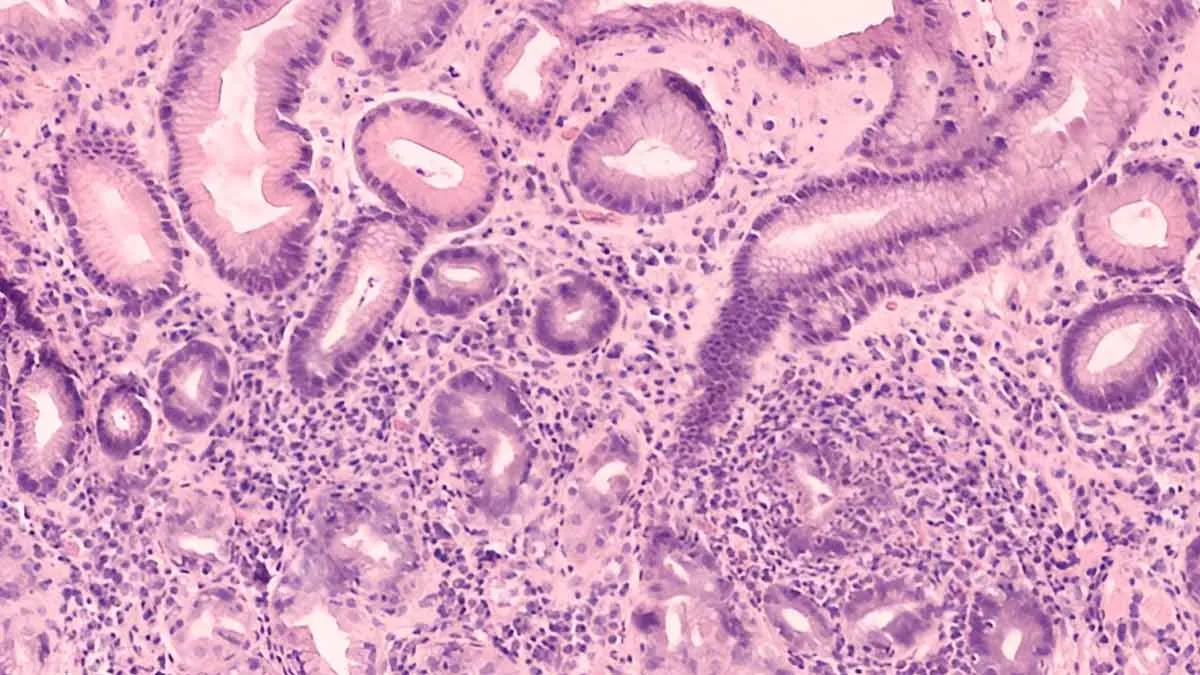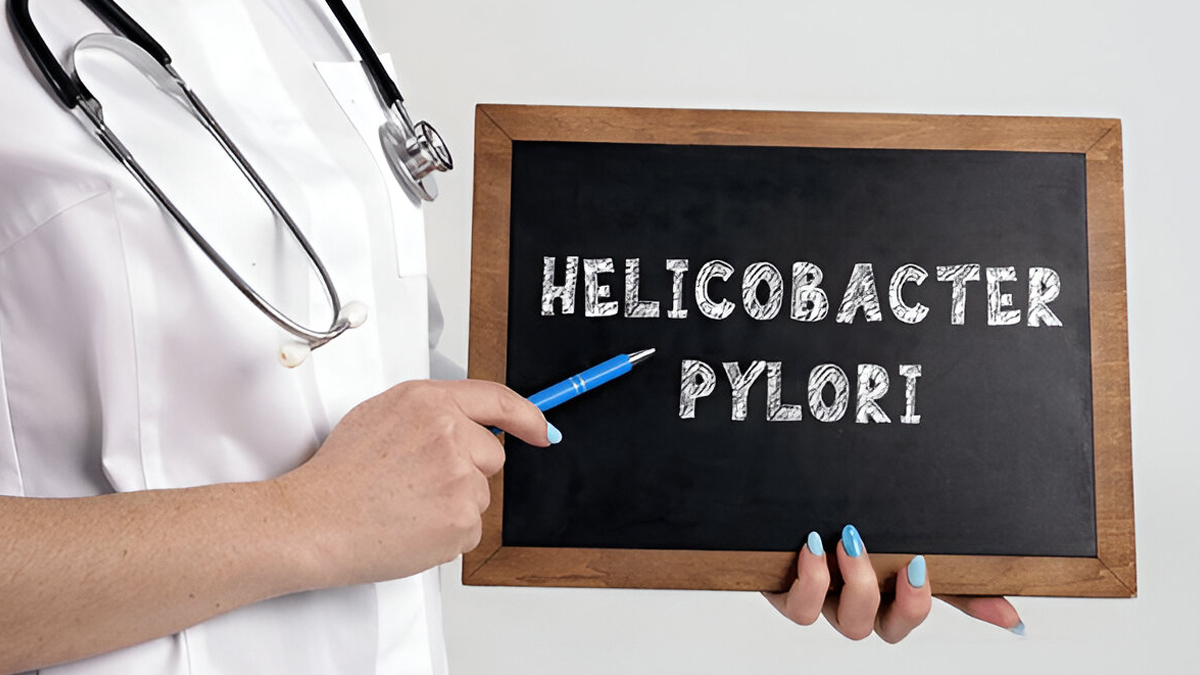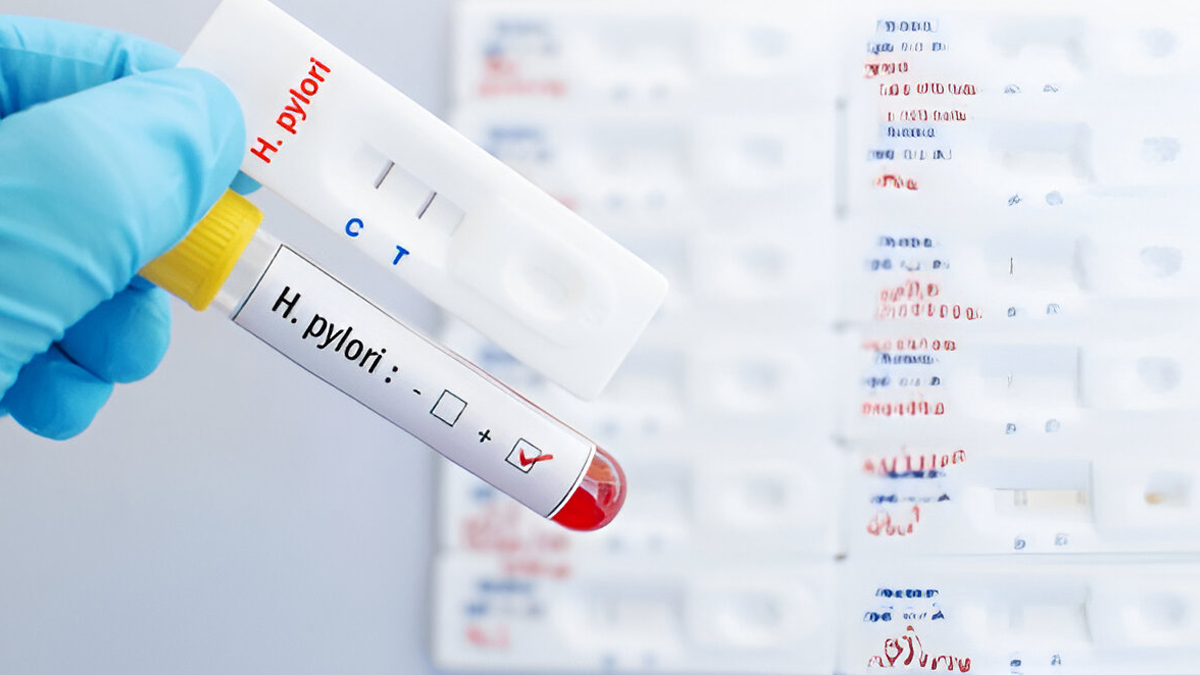
A new study has found that Helicobacter pylori, or H. pylori, a common bacteria that infects nearly half the global population, could be a major driver of stomach cancer worldwide. Researchers estimate that over 15 million people born between 2008 and 2017 may develop gastric (stomach) cancer, with 76% linked to H. pylori infection. Alarmingly, India is projected to have the second-highest number of cases, after China.
Table of Content:-
What Is H. Pylori?

H. pylori is a type of bacteria that most people have never heard of, yet it quietly lives in the stomachs of nearly half the world’s population. In most cases, this bacteria causes no harm. But sometimes, it can lead to serious health issues like stomach ulcers, chronic inflammation, or even gastric (stomach) cancer. This happens because H. pylori weakens the protective lining of the stomach, allowing acid to damage the underlying tissue. Over time, this damage can cause painful ulcers and persistent inflammation, known as gastritis.
If left untreated for years, the ongoing irritation may lead to changes in the stomach’s cells, increasing the risk of gastric cancer. Certain strains of H. pylori are more aggressive, and factors like poor diet, smoking, long-term use of certain painkillers, or a family history of stomach cancer can raise the risk further.
Some people experience symptoms like bloating, frequent burping, stomach pain, nausea, or loss of appetite. Others don’t feel anything at all until the bacteria causes bigger problems down the road.
Also Read: Roadies XX’s Rhea Chakraborty Reveals Having Ulcer: Warning Signs You Shouldn't Miss
What Does The Study Find?

The study conducted by scientists from the International Agency for Research on Cancer (IARC), part of the World Health Organization (WHO), and published in Nature Medicine has raised serious concerns about the future burden of stomach cancer.
The researchers estimate that 15.6 million people born between 2008 and 2017 could develop gastric (stomach) cancer in their lifetime, and about 76% of these cases may be linked to a common bacterial infection called H. pylori.
The study analysed data from 185 countries and found that the highest number of future cases are expected in Asia, especially China and India, followed by the Americas and Africa. What makes this finding more urgent is that gastric cancer is largely preventable, especially if H. pylori is detected and treated early. Yet, few countries have introduced population-wide “screen-and-treat” programs to tackle this infection.
The study showed that such interventions could reduce future stomach cancer cases by up to 75%. Despite this, many high-risk regions, including parts of Africa and Latin America, lack formal strategies to manage or prevent the disease. In fact, some low-risk areas are projected to see a dramatic rise in cases due to population growth and better detection.
The researchers are urging policymakers to shift their focus from treatment to prevention, starting with H. pylori testing and eradication. They also highlight the need for more investment in vaccine development, especially in low- and middle-income countries, where the burden is expected to rise sharply. Without timely action, the world could see millions of preventable stomach cancer cases unfold over the next few decades.
Treatment Options For H. Pylori
H. pylori infection is treatable and, in most cases, completely curable. Doctors usually recommend a combination of antibiotics and acid-reducing medications (such as proton pump inhibitors) to clear the bacteria and help the stomach lining heal. This is often called 'triple' or 'quadruple' therapy, depending on the drug combination used.
Treatment typically lasts for 10-14 days. In some cases, especially if the bacteria are resistant to antibiotics, a second round of treatment may be needed. After the course, a follow-up test is often done to make sure the infection is gone. The key is to complete the full treatment as prescribed, even if you start feeling better halfway through.
Also Read: Stool Or Blood Test: Which Is More Accurate In Detecting H. Pylori?
Can H. Pylori Be Prevented?

While there’s no vaccine yet to prevent H. pylori, you can reduce your risk of infection with some basic hygiene practices. The bacteria spread through contaminated food, water, or close contact with someone who is infected; so washing your hands regularly, drinking clean water, and eating properly cooked food can help lower your chances of getting it.
In families or communities where the infection is common, routine testing and early treatment can help break the cycle of transmission. Scientists are also working on developing a vaccine, which could be a game changer, especially in areas with high infection rates.
Conclusion
H. pylori is a common infection that often goes unnoticed, yet it plays a major role in one of the world’s most serious cancers: gastric cancer. Early testing, timely treatment, and better awareness can save lives. While not everyone with H. pylori will develop cancer, taking steps to detect and treat it early is a simple, effective way to protect your long-term health. If you test positive for an H. pylori infection, remember to speak to a doctor for proper treatment.
Also watch this video
How we keep this article up to date:
We work with experts and keep a close eye on the latest in health and wellness. Whenever there is a new research or helpful information, we update our articles with accurate and useful advice.
Current Version